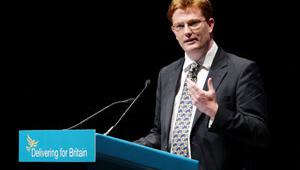We all await with baited breath the results of the Comprehensive Spending Review on Wednesday. This exercise will concern the largest reductions in public spending since the Geddes cuts in the 1920s and will dwarf anything that the Thatcher governments of the 1980s tried to undertake.
It is clear that many many public service activities will suffer large real-terms cutbacks in funding and those likely to be most strongly hit include higher education, adult social care and the criminal justice system. But the nagging question must be: are we looking in the right places or is the CSR just a fig leaf exercise in protecting certain activities for naked political reasons?
Let’s look at three protected services:
- Health - The NHS is a budget that is ‘protected’. However, between 2002/03 and 2007/08, the health service received an additional cash injection of over £43bn. Of that money about 40% went on pay and price increases including certain areas where there were no real staff recruitment problems. While some improvements in health services clearly took place, the NHS managed to ‘achieve’ higher unit costs, lower admissions per consultant (and per nurse) and lower productivity. Wasn’t there a desperate case for ensuring that the NHS underwent radical reform before all this money was pumped in but the politicians didn’t have the ‘bottle’ to do it?
- Schools - despite a decade in which spending on education nearly doubled, productivity in the schools system actually fell by 1.5 per cent, according to the Office for National Statistics (ONS). Declining school standards, a drop in attendance and the government's decision to recruit 50,000 new school assistants at a time when the number of school-age children was falling were all blamed for the fall. The schools budget is also to be protected.
- Defence – the defence budget looks to be partially protected. A Nobel Laureate for economics (Joseph Stiglitz) has suggested that the budgetary cost to the UK of the wars in Iraq and Afghanistan through to 2010 will total more than £18bn. If we include the social costs, the total impact on the UK will exceed £20bn. Iraq is now finished but Afghanistan seems unlikely to end for many years yet. The majority of British people are now in favour of withdrawal from a theatre of war where history suggests we have little chance of ‘winning’ – whatever that means. So why are we doing this? I suggest it is the usual case of kowtowing to an American president who has shown no friendship to the UK (remember ‘British Petroleum’ instead of BP) in spite of the support given to the US over many years.
Might it be better to rename the Comprehensive Spending Review something like the Non-comprehensive Whitewash Review?
Malcolm Prowle is professor of business performance at Nottingham Business School and a visiting professor at the Open University Business School. He can be contacted via his web page www.malcolmprowle.com











